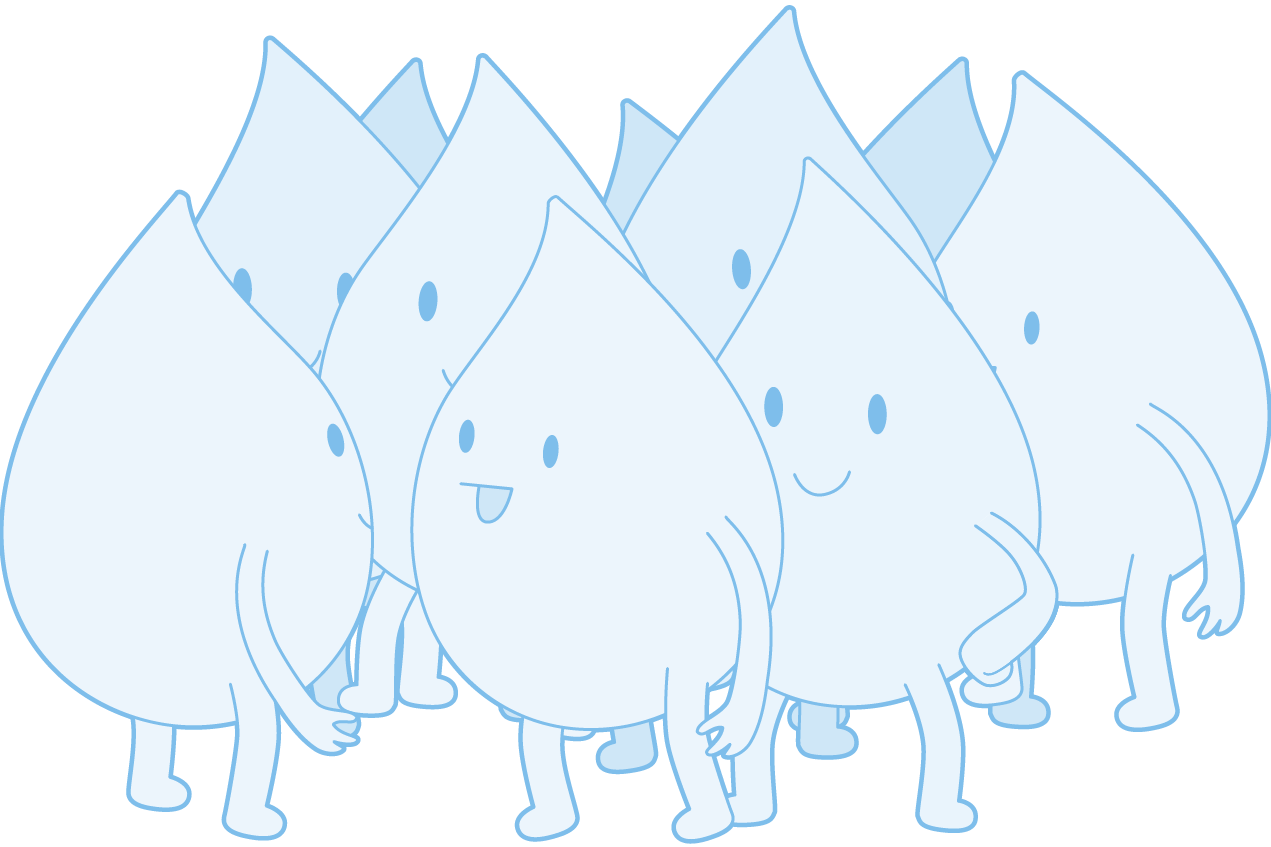Hydrology & hydrological data
Without water (Greek hydro) there is no life. As water is so important, it is the job of hydrologists to investigate the hydrological interactions that are needed to make decisions in water management. For developing models for flood and drought forecasts, for example, measurement data are needed. These should show as precisely as possible when and where there is how much water. However, water data are often in short supply because, one reason being, installing and maintaining sensors is time-consuming and expensive. Globally, the amount of officially collected hydrological and meteorological data is decreasing.

The good news is that there are new methods to measure environmental data. For example, satellite images can be used to address many issues. But despite all this, important hydrological variables such as the amount of water in a river or the moisture in the soil are still difficult to observe with good spatial and temporal resolution. This is where citizen science comes in.
Citizen Science – doing science together
The Oxford dictionary defines citizen science as scientific work conducted by citizens, often in collaboration with or under the direction of professional researchers and scientific institutions.
Citizen scientists are members of the public who are involved in a citizen science project. Citizen scientists not only collect valuable data, but can also raise society’s awareness of environmental issues, in this case water.
 +
+ 
Collecting environmental data with the help of citizen scientists is nothing new. Since 1900, annual Christmas bird counts have been conducted in the USA. These help to determine the bird population. The Audubon Christmas Bird Count is the longest running citizen science project in the world. But there are other examples as well: Swedish meteorologist Tor Bergeron asked people to measure snow depth (1949) and rain (1960). Collecting citizen science data has become much easier today thanks to smartphones. Communication between citizen scientists and researchers is also quite easy thanks to social media.
Ten principles of citizen science
The “ten principles of citizen science” nicely summarize citizen science and are taken from the following book chapter:
Robinson L.D., Cawthray, J.L., West, S.E., Bonn, A., & Ansine, J. (2018). Ten principles of citizen science. In S. Hecker, M. Haklay, A. Bowser, Z. Makuch, J. Vogel, & A. Bonn. Citizen Science: Innovation in Open Science, Society and Policy. London, UCL Press. 1–23.
- Citizen science projects actively involve citizens in scientific endeavour that generates new knowledge or understanding. Citizens may act as contributors, collaborators or as project leaders and have a meaningful role in the project.
- Citizen science projects have a genuine science outcome. For example, answering a research question or informing conservation action, management decisions or environmental policy.
- Both the professional scientists and the citizen scientists benefit from taking part. Benefits may include the publication of research outputs, learning opportunities, personal enjoyment, social benefits, satisfaction through contributing to scientific evidence, for example, to address local, national and international issues, and through that, the potential to influence policy.
- Citizen scientists may, if they wish, participate in multiple stages of the scientific process. This may include developing the research question, designing the method, gathering and analysing data, and communicating the results.
- Citizen scientists receive feedback from the project. For example, how their data are being used and what the research, policy or societal outcomes are.
- Citizen science is considered a research approach like any other, with limitations and biases that should be considered and controlled for. However unlike traditional research approaches, citizen science provides opportunity for greater public engagement and democratisation of science.
- Citizen science project data and metadata are made publicly available and where possible, results are published in an open-access format. Data sharing may occur during or after the project, unless there are security or privacy concerns that prevent this.
- Citizen scientists are acknowledged in project results and publications.
- Citizen science programmes are evaluated for their scientific output, data quality, participant experience and wider societal or policy impact.
- The leaders of citizen science projects take into consideration legal and ethical issues surrounding copyright, intellectual property, data-sharing agreements, confidentiality, attribution and the environmental impact of any activities.
